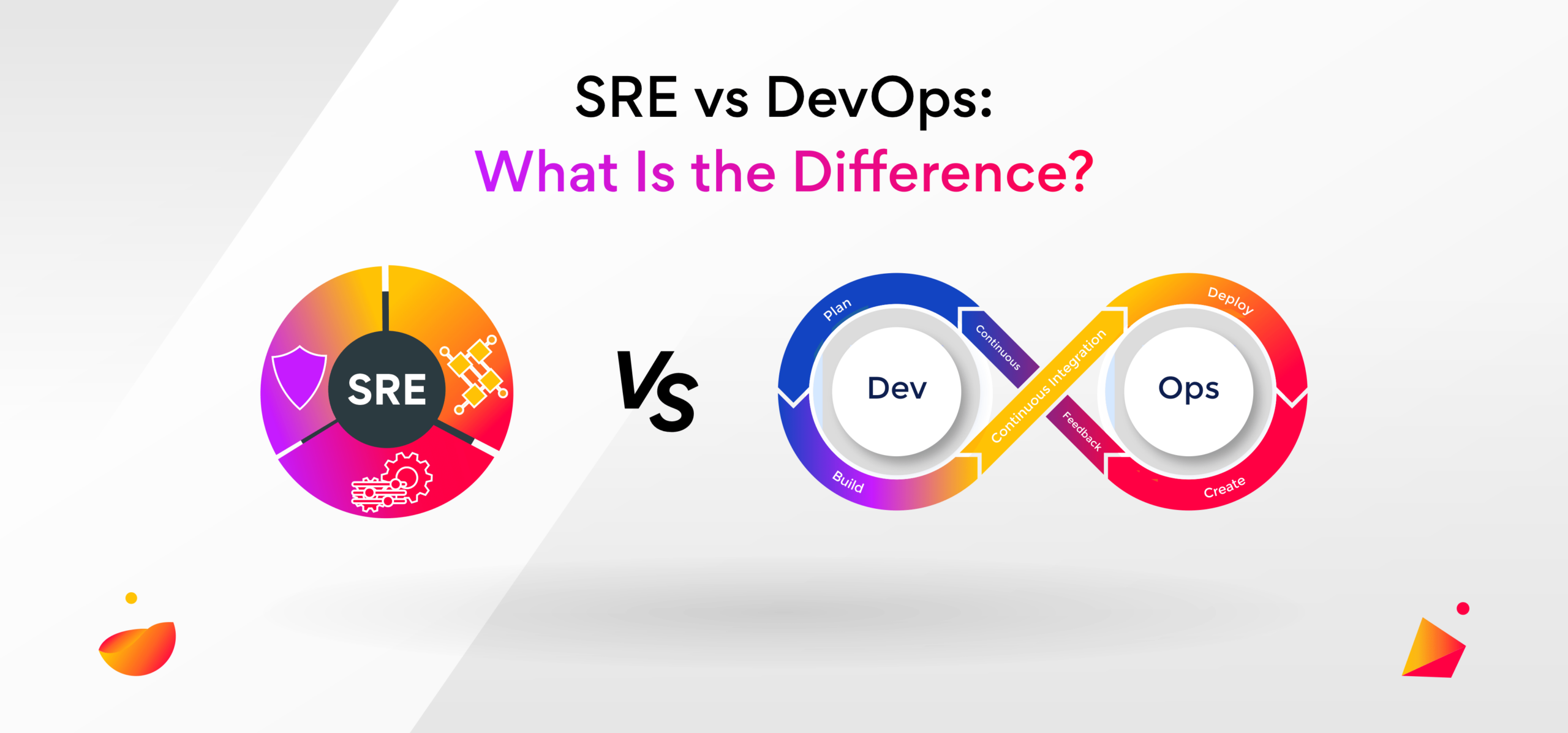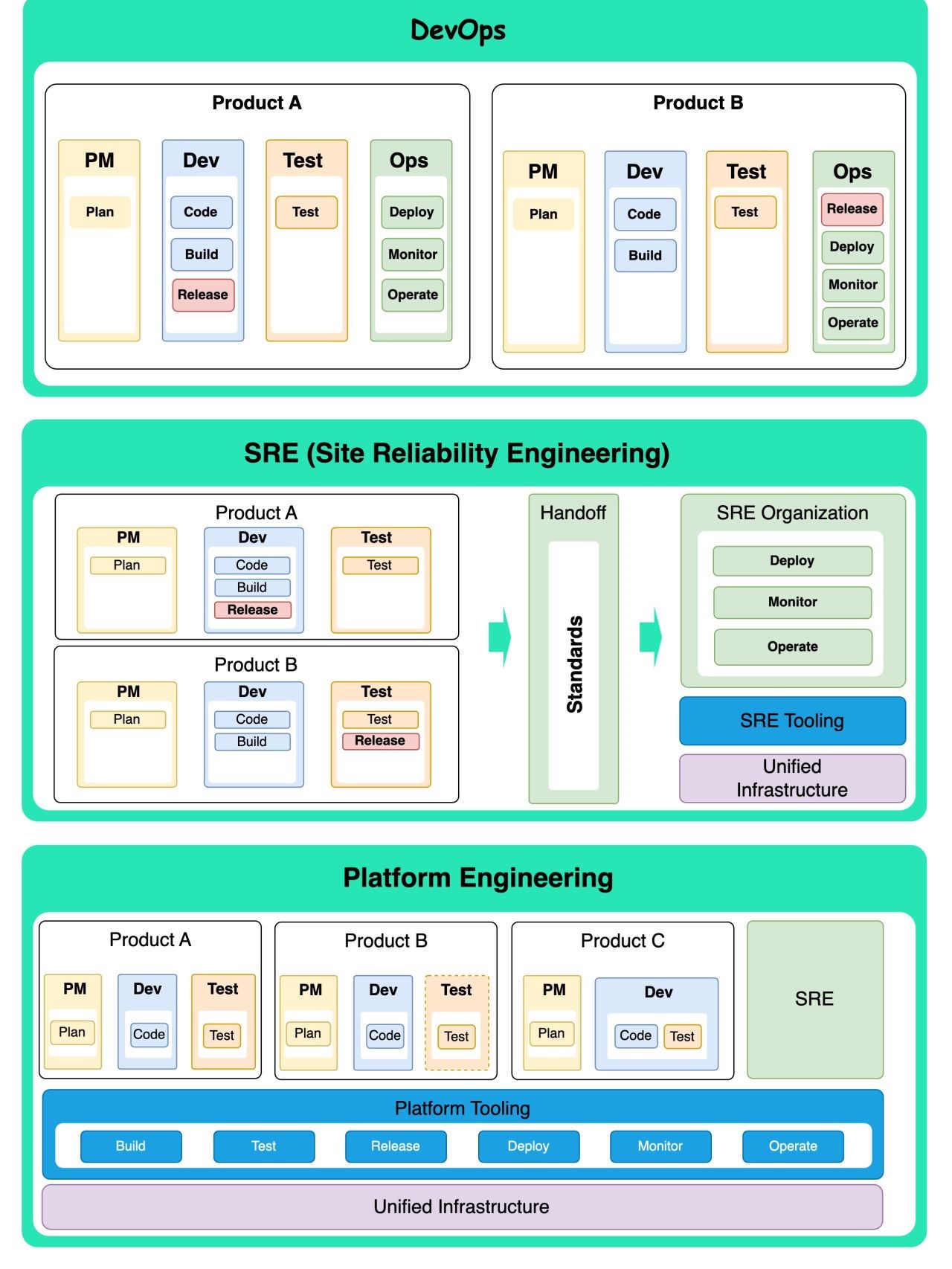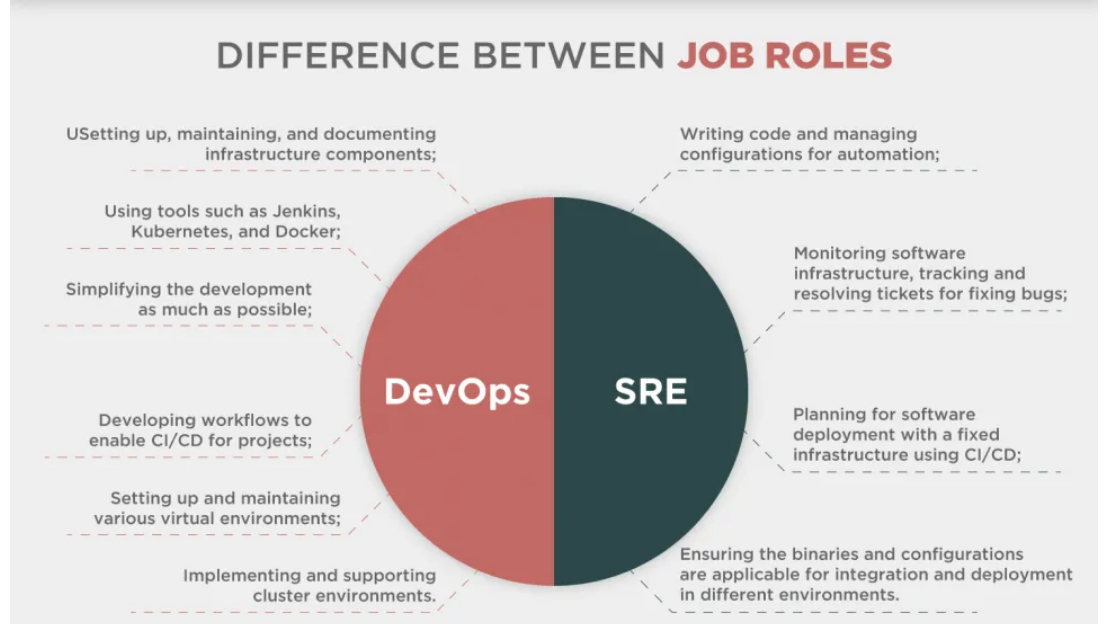DevOps vs SRE
 Ashwin
Ashwin
DevOps (Development and Operations) and SRE (Site Reliability Engineering) are two approaches that aim to improve software development, deployment, and operations processes. While they share some common goals, they have distinct focuses and practices.
DevOps:
Collaboration: DevOps emphasizes collaboration between development and operations teams. It aims to break down silos and improve communication.
Automation: Automation is a core principle. DevOps seeks to automate repetitive tasks, from code deployment to infrastructure provisioning.
Continuous Integration and Deployment (CI/CD): DevOps promotes the use of CI/CD pipelines to automate code testing, integration, and deployment.
Cultural Transformation: It often involves a cultural shift to encourage shared responsibility for the entire software delivery lifecycle.
Flexibility: DevOps is flexible and can be adapted to different environments and needs.
Tools: A wide range of tools is used, such as Jenkins, Docker, and Kubernetes.
SRE (Site Reliability Engineering):
Reliability: SRE's primary focus is on ensuring the reliability, availability, and performance of systems and services.
Error Budgets: SRE introduces the concept of error budgets. It allows for a certain amount of service downtime to implement changes or improvements.
Service Level Objectives (SLOs): SRE defines SLOs for services to measure and maintain their reliability. SLOs are a key aspect of error budgets.
Automation: Like DevOps, automation is crucial, but SRE's automation often centers around monitoring, alerting, and incident response.
Metrics-Driven: SRE relies heavily on metrics and monitoring to make data-informed decisions.
Google Influence: SRE practices were popularized by Google, and Google's book on SRE practices serves as a foundational reference.
In summary, DevOps is a broader cultural and technical movement that focuses on collaboration, automation, and the entire software delivery pipeline. SRE is a specialized discipline within DevOps that hones in on the reliability and performance aspects of services and introduces specific concepts like error budgets and SLOs. Depending on an organization's needs, they may adopt either or both of these approaches to improve their software development and operations practices

What SRE team is responsible for?
The SRE team is responsible for the availability, latency, performance, efficiency, change management, monitoring, emergency response, and capacity planning of their services
What is an error budget?
An error budget is the maximum amount of time that a technical system can fail without contractual consequences.
What is the role of monitoring in SRE?
Monitoring is one of the primary means by which service owners keep track of a system’s health and availability
What are the two main SRE KPIs
Service Level Indicators (SLI) and Service Level Objectives (SLO).
What is Toil?
Toil is the kind of work tied to running a production service that tends to be manual, repetitive, automatable, tactical, devoid of enduring value, and that scales linearly as a service grows.
Difference Between Job Roles of SRE and DevOps
The differences between SRE and DevOps in terms of work roles are best explained by the day-to-day tasks of the people working in those roles.
SRE job description usually includes these responsibilities:
Writing code and managing configurations for automation.
Monitoring software infrastructure, tracking and resolving tickets for fixing bugs.
Planning for software deployment with a fixed infrastructure using CI/CD.
Ensuring the binaries and configurations are applicable for integration and deployment in different environments.
On the other hand, DevOps engineers typically focus on:
Simplifying the development and deployment of software for the development team as much as possible.
Using tools such as Jenkins, Kubernetes, and Docker to automate build, test, and deploy software according to CI/CD priorities.
Setting up, maintaining, and documenting infrastructure components.
Developing workflows to enable CI/CD for projects.
Setting up and maintaining various virtual environments (VMs, Containers).
Implementing and supporting cluster environments.

Subscribe to my newsletter
Read articles from Ashwin directly inside your inbox. Subscribe to the newsletter, and don't miss out.
Written by

Ashwin
Ashwin
I'm a DevOps magician, conjuring automation spells and banishing manual headaches. With Jenkins, Docker, and Kubernetes in my toolkit, I turn deployment chaos into a comedy show. Let's sprinkle some DevOps magic and watch the sparks fly!